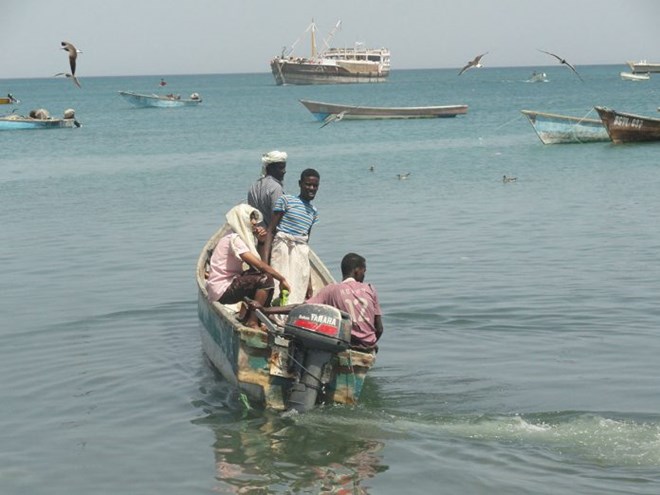
Wednesday June 9, 2021

Bile Yusuf Nur, who used to earn his living as a frankincense trader, is supporting his family as a fisherman on a couple of dollars a day, following the collapse of the export trade in the ancient aromatic resin as an indirect result of the COVID19 pandemic.
Bile used to pay $250 a year to rent two frankincense trees, owned by local families who prepare the trees for the productive rainy seasons.
He harvested twice a year in June and October, selling the frankincense to middlemen for export to markets in Saudi Arabia and UAE markets, making a comfortable $3,000 a year.
But mid-last year, as the COVID19 pandemic erupted, the export markets in Arab countries collapsed as clients ceased their orders from abroad.
Bile and his family are among 200 families in Qandala and Bargaal in Bari region, in Somalia’s northeastern regional state of Puntland, forced to find an alternative living due to the collapse of the frankincense export business.
He moved with his wife and two youngest children to Bargaal town in early May, where he joined a group of local fishermen. He had to send seven of his children away to stay with relatives in Gumbah district.
“I earn three dollars on the days I make a good catch,” he told Radio Ergo. “There are days when I don’t make a catch at all. Now we are in the season when the sea gets rough so the little I am getting might stop any day.”
Bile has accumulated a debt of $2,120 at food stores. Four of his children have stopped going to Gumbah primary school as he cannot pay the fees totalling $28 a month.
“The frankincense business was profitable. I used to clear at least $1,000 after paying my debts. Some of this money was what I used to pay the school fees. But now the little I get is not even enough for food,” he complained.
One of the exporters of frankincense to Saudi Arabia, Abshir Mohamed Mohamoud, said that in 2020 he sold just 150 bags, whilst his average exports used to exceed 1,200 bags a year from Qandala port. He has stopped buying from the harvesters like Bile, as he is sitting on 400 bags in storage that he bought at $17 per bag.
“Some of the frankincense has been in the warehouse for a year. There is no market now. We will wait until things change for the better before we buy new supplies,” he said.
Abshir’s income has also frozen and he said he is now providing for his family and paying the school fees for two of his six children from his savings. Most of the families that lived off the frankincense trade in Qandala are out of business.
Said Ali Dahir, a resident on the outskirts of Qandala, is among the few harvesters who are still selling their resin locally. He owns a 70-year-old tree that he inherited from his father. He has been selling frankincense in small amounts across Qandala and the surrounding villages.
“We used to sell one kilogram at $5 or $6, but now I am selling it for $2. I am not hoping for profit this year,” he said.